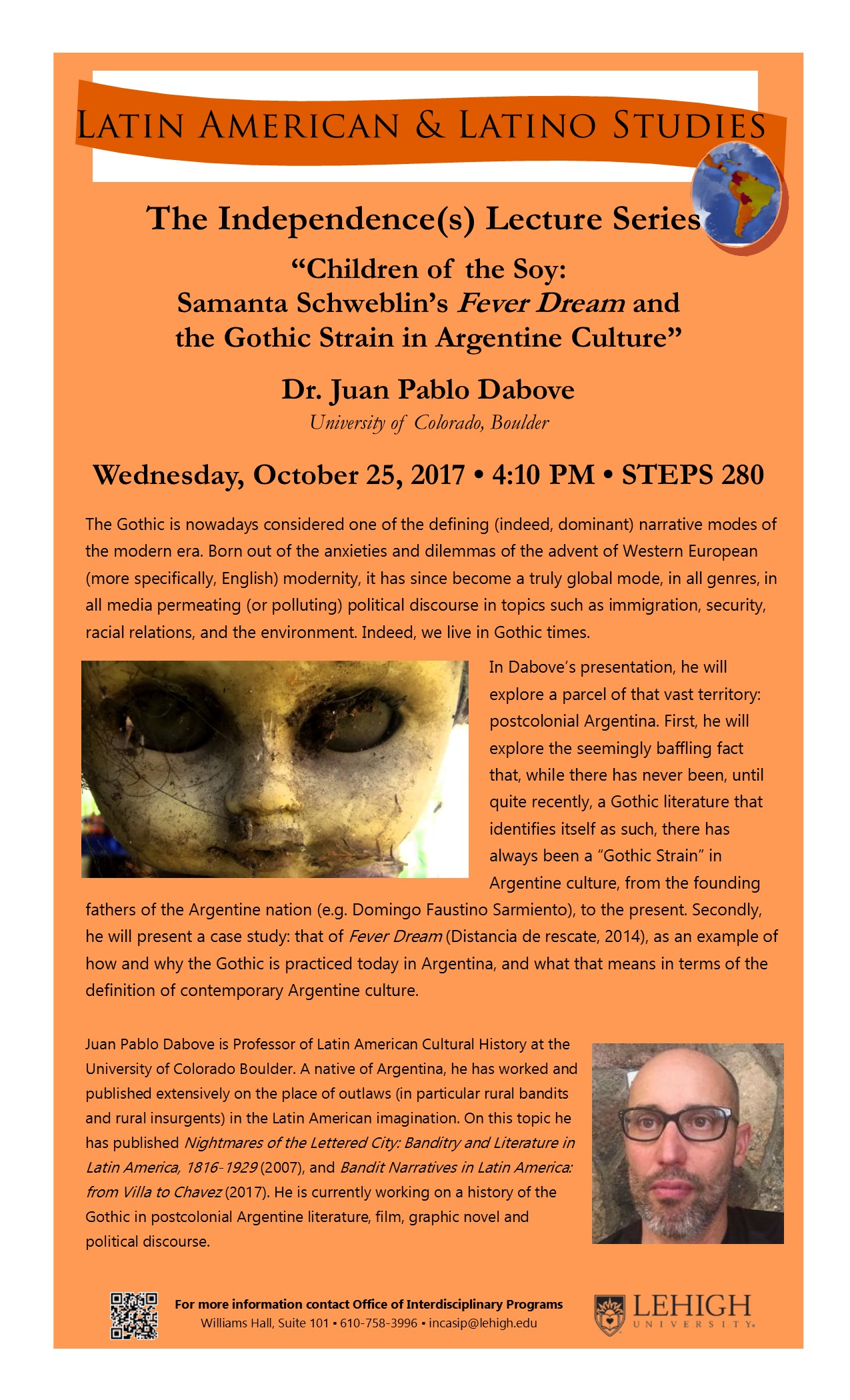The Independence(s) Lecture Series: Children of the Soy: Samanta Schweblin’s Fever Dream and the Gothic Strain in Argentine Culture
Wednesday, October 25, 2017 - 4:10pm
STEPS 280
The Independence(s) Lecture Series
Children of the Soy: Samanta Schweblin’s Fever Dream and the Gothic Strain in Argentine Culture
Dr. Juan Pablo Dabove
University of Colorado, Boulder
The Gothic is nowadays considered one of the defining (indeed, dominant) narrative modes of the modern era. Born out of the anxieties and dilemmas of the advent of Western European (more specifically, English) modernity, it has since become a truly global mode, in all genres, in all media permeating (or polluting) political discourse in topics such as immigration, security, racial relations, and the environment. Indeed, we live in Gothic times.
In Dabove’s presentation, he will explore a parcel of that vast territory: postcolonial Argentina. First, he will explore the seemingly baffling fact that, while there has never been, until quite recently, a Gothic literature that identifies itself as such, there has always been a “Gothic Strain” in
Argentine culture, from the founding fathers of the Argentine nation (e.g. Domingo Faustino Sarmiento), to the present. Secondly, he will present a case study: that of Fever Dream (Distancia de rescate, 2014), as an example of how and why the Gothic is practiced today in Argentina, and what that means in terms of the definition of contemporary Argentine culture.
Juan Pablo Dabove is Professor of Latin American Cultural History at the University of Colorado Boulder. A native of Argentina, he has worked and published extensively on the place of outlaws (in particular rural bandits and rural insurgents) in the Latin American imagination. On this topic he has published Nightmares of the Lettered City: Banditry and Literature in Latin America, 1816-1929 (2007), and Bandit Narratives in Latin America: from Villa to Chavez (2017). He is currently working on a history of the Gothic in postcolonial Argentine literature, film, graphic novel and
political discourse.

